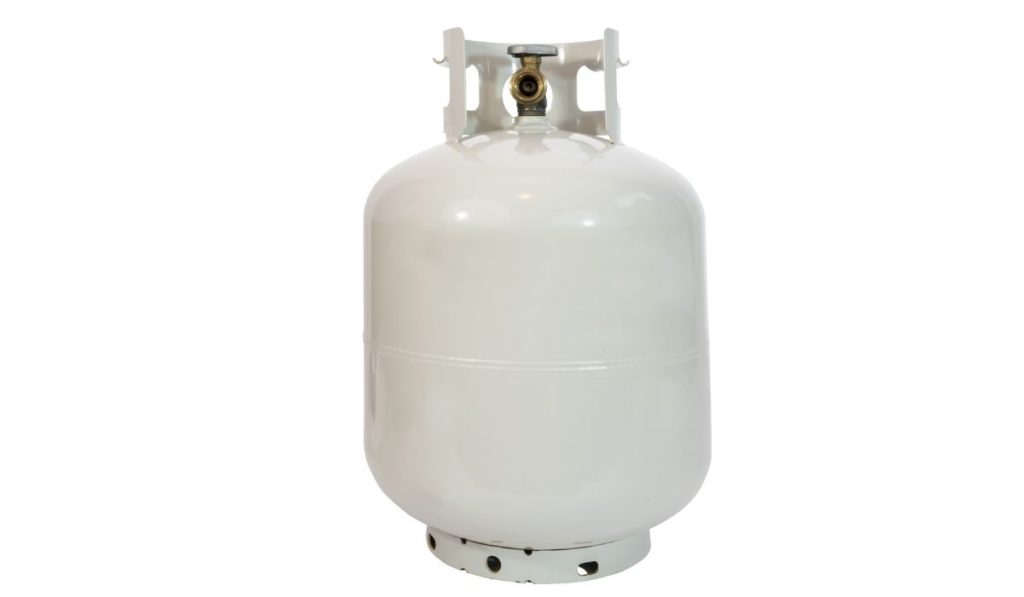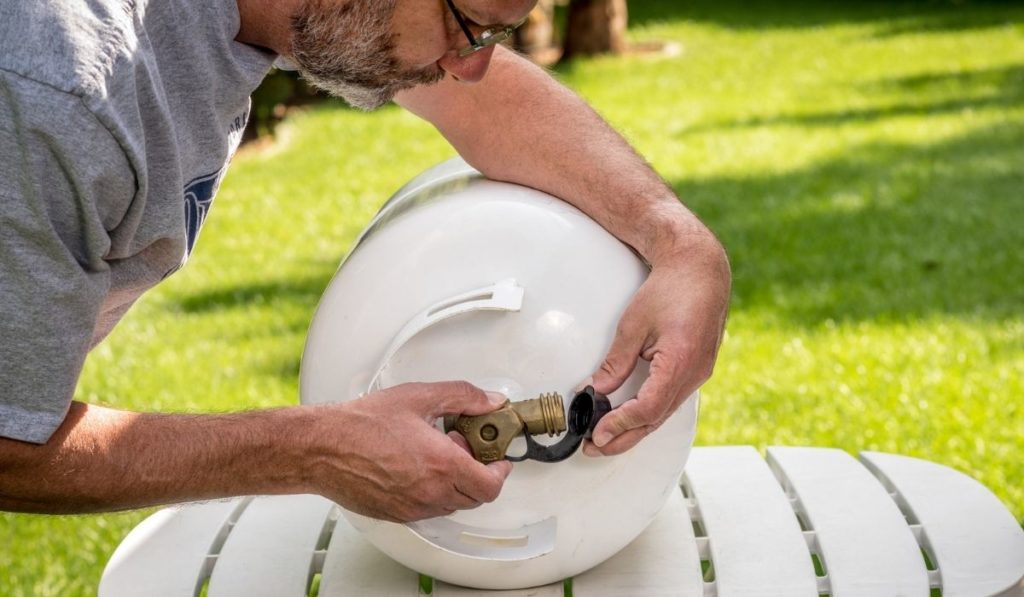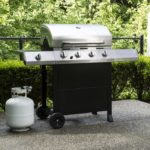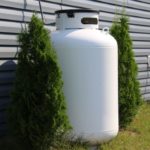Propane tanks can be quite difficult to break or damage, since they’re built to be pretty tough. But if yours manages to break nonetheless, it should be handled carefully to avoid any safety hazards.
If your tank is only slightly dented, you can have it checked and recycled/refilled. An undamaged tank that isn’t working may have a failed regulator, which can be replaced, but if the tank itself is damaged, you should contact a propane supplier to have it uninstalled and removed by professionals.
Propane tanks are a fairly safe way to store fuel, but there are some safety tips that you need to keep in mind, such as keeping the tank away from flames, upright, and in a cool place. Along with those, you should monitor your tank for severe dents and other damage. If it’s broken, you’ll want to get it dealt with professionally. Let’s take a look at how you can do that.
What Is a Propane Tank?

To put it simply propane tanks are the storage containers for propane while it’s in a liquid form. You’ve probably seen these large storage tanks every now and then, near a grill or someone’s house. But these aren’t any old tanks.
Propane tanks are designed and specifically engineered to be able to hold and safely contain propane in them, which involves keeping the pressure very high. Most of these tanks are designed by the manufacturer to be installed at a customer’s house or wherever they may wish to store them.
Mostly, propane tanks are leased and rented, and they can also be refilled by the manufacturer. The tanks can sometimes be purchased as well, although it’s rare.
Some larger tanks can be temporarily installed at specific locations for commercial reasons, events, or anything else that might require heavy propane usage. The size of these tanks can range anywhere from 4 to 40 pounds.
To pack the propane into the tank, it needs to be compressed. Compressing propane consists of pressurizing it and then finally storing it in the tank. The temperature in the tank is -44°F and remains like that until the propane is finally ready to be used.
Once you open the valve on the tank, the internal pressure will immediately drop, and the propane is exposed to the outside temperatures. This is what turns the liquid propane into a vapor form.
Do Propane Tanks Explode?
Now that we’ve got a good idea what propane tanks are, an important question to consider is whether they can explode. While there might be some mishaps with propane tanks, the common belief that propane tanks can simply explode if they hit the ground is incorrect.
Contrary to popular belief, a propane tank will not just explode if it falls or has impact with anything hard. In fact, it’s not that easy for a propane tank to explode at all. Here’s why:
Boiling Liquid Expanding Vapor Explosion (BLEVE)
The term BLEVE is mostly well-known among firefighters and people dealing with hazardous materials. A BLEVE happens when the internal pressure of the tank exceeds the normal level. When this happens, the safety valve can vent the excess pressure into the outside atmosphere.
These relief valves are specifically designed to vent out any extra pressure into the outside atmosphere. Once the internal pressure of the tank reaches a certain level, the pressure is then retained.
BLEVE in a propane tank will occur when the tank may be subject to extreme amounts of heat, such as a fire. When the tank is exposed to such harsh levels of heat, the propane inside starts to expand. This is when the safety relief valve will allow the excess pressure to escape into the outside atmosphere.
However, in some cases, should that temperature increase to such a degree that the relief valve cannot expel it, the tank may rupture. This scenario can get worse if there is a source of ignition or flames nearby, which can encourage the propane inside to ignite and result in an explosion.
While that may sound scary, these explosions are very rare and only happen under very particular circumstances.
Tank Strength
Propane tanks are usually quite well designed and strong enough to bear everyday impacts. The manufacturers can foresee these accidents and design the tanks accordingly.
Tanks have shown to take impacts without rupturing at 60% full. The tanks have also experienced high impacts but have only shown some dents. These are all results and reflections of the strength and built quality of these tanks.
What Do You Do With a Broken Propane Tank?

While propane tanks are usually built to withstand everyday impacts, they can of course be damaged, dented, broken or simply too old. Under these circumstances, it’s good to either dispose of or recycle the tank altogether.
How Do I Dispose of a Propane Tank?
There are numerous options available when it comes to disposing of the tank. If you have a large bulk propane tank, you’re advised to contact a licensed propane company, or a propane supplier, to come and remove it. They are professionals and will be able to safely uninstall and remove the tank.
If you have a smaller propane tank, you can either contact a propane supplier and have it removed or simply call your local hazardous waste collection site. They will safely remove the tank.
In some areas, you are allowed to dispose of propane tanks, propane bottles, and propane cylinders along with your regular household trash. They usually ask you to make sure that the tank/container is empty. However, this is not advisable as it can be a safety and health hazard. The removal process should be left to professionals.
How Do I Recycle a Propane Tank?
If your tank is not completely busted, you can always recycle it. Take it to a local supplier who will direct you to a specialized recycler of propane tanks. It’s important to understand that propane tanks can’t be recycled in the same way as most other things; this is because there is always a bit of propane left in the tank and that needs to be dealt with carefully.
To recycle a tank, it should meet a few criteria, such as being serviceable and meeting certain safety requirements. If it does, it can be refilled and reused again.
Safety Tips for Using Propane Tanks
Even though propane tanks are generally safe to keep and use, here are some extra tips to keep in mind:
- Keep the propane tank outdoors.
- When moving the tank, make sure the valves are closed and secured with a plug.
- Keep the tank in a well-ventilated and cool area.
- Keep the tanks away from flames. Do not smoke near a propane tank while it’s in use.
- Make sure your propane tank has an overfill protection device to protect it from combustion.
- Read the manufacturer’s instructions on how to store the propane tank. The tanks are designed to be kept in a certain position that will be indicated in the instructions.
- Propane tanks come with a stamped manufacturer date, and you should always check that. If your tank is expired, do not use it. You can also get your propane tank recertified, which extends the use anywhere from 3 to 7 years.








